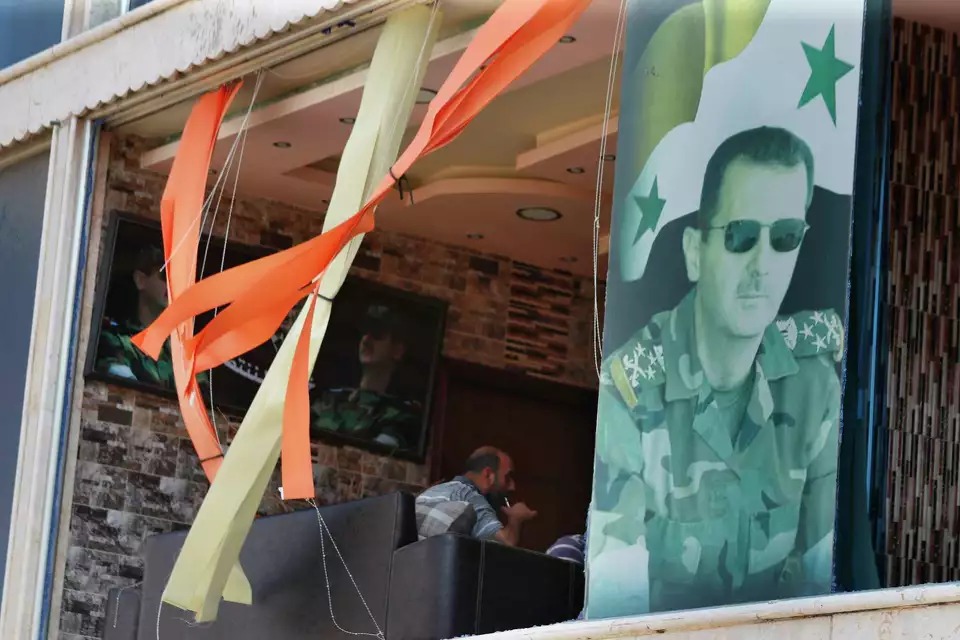Escalating tensions across Syria and its surrounding regions continue to raise alarms, as new reports highlight the deepening humanitarian and security crises. In France, anti-terrorism officials confirmed that 364 children of suspected ISIS affiliates repatriated from Syria and Iraq are doing well under close monitoring. Meanwhile, Iran’s Islamic Revolutionary Guard Corps (IRGC) vowed retaliation for recent Israeli airstrikes on Syrian military sites, which killed 18 people. Syrian refugees in Lebanon, already struggling with economic challenges, are increasingly caught in the crossfire between Hezbollah and Israel, suffering from injuries and chemical exposure. Additionally, the UN warns that Syria faces the risk of a “large-scale war” as hostilities between various factions escalate, alongside a worsening humanitarian crisis marked by widespread food insecurity and underfunded aid efforts.
Children Of ISIS Suspects Returned To France Doing Well: Prosecutor
France’s anti-terrorism prosecutor said on Wednesday that 364 repatriated children of French parents suspected of joining the Daesh group in Syria and Iraq a decade ago were doing well, Arab News reported.
“There are 364 children in 59 departments (areas in France), who are followed by judges for children, and who benefit from coordination from my office to make sure they have optimal care,” Olivier Christen told the France Info radio station.
Another anti-terror prosecutor had in 2018 expressed fear that the children of French nationals who joined Daesh after it set up a so-called caliphate in 2014 could be “ticking time bombs.”
But Christen, who leads the National Anti-Terror Prosecutor’s Office (PNAT) opened in 2019 in the wake of a spate of jihadist attacks, brushed aside that worry.
“These 364 children in no way seem to me to correspond to that expression,” he said.
“They are being closely monitored… They pose no particular difficulty.”
“There are very different situations. Some are very, very young children, others are fully fledged teenagers,” he added.
Overall 170 women had returned from Iraq and Syria to France, he said, including 57 from detention camps in northeast Syria in recent years since the Daesh caliphate’s territorial collapse in 2019.
Of the 364 children who had been brought to France, “169 have been repatriated over the past two years,” he added.
Israel to receive ‘stinging, appropriate’ response for deadly Syria strike: Top IRGC Commander
A high-ranking commander of Iran’s Islamic Revolution Guards Corps (IRGC) has warned the Israeli regime that it will receive a “slap in the face” for the deadly airstrikes against multiple military installations and buildings in Syria’s central province of Hama, Press TV reported.
“Zionists’ crimes will not go unpunished, and Zionist criminals will definitely receive a sharp slap in the face in due time and in the right place,” Deputy Commander of the Inspection Department at the Khatam al-Anbiya Central Headquarters, Brigadier General Mohammad Jafar Asadi, said on Wednesday.
Syrian Health Minister Hassan al-Ghabbash said on Monday that 18 people were killed as a result of overnight Israeli airstrikes on a number of sites in the vicinity of Masyaf, located approximately 40 kilometers (24 miles) west of the provincial capital city of Hama.
He added that 37 people were also wounded in the strikes.
Syria warns the Israeli regime about the dire consequences of its atrocities against regional countries, reacting to the regime’s earlier deadly strikes on the country.
In Lebanon’s south, Syrian refugees grapple with the impact of Hezbollah and Israel’s war
Residing in south Lebanon’s Bint Jbeil, Syrian labourer Issam and his wife and three daughters have found themselves caught in the middle of cross-border fire between Israel and Hezbollah, The New arab reported.
Unable to relocate to Beirut or other cities due to the high rental costs, and with difficulty in accessing healthcare, life is increasingly precarious for the Syrian family.
“My daughters have shortness of breath because they inhaled the white phosphorus, and I can’t afford to take them to a nearby private hospital,” Issam tells The New Arab.
Syrian refugees injured in Israeli attacks in south Lebanon are generally unable to afford the medical fees for consultations and hospital treatment in nearby private hospitals.
According to the last Cumulative Emergency Report published by the Lebanese Ministry of Public Health on 20 August, seven percent of those injured in Israeli strikes since the beginning of the war are non-Lebanese citizens, with 42 percent of total injuries attributed to blunt trauma and 15 percent due to chemical exposure to white phosphorus.
At least 31 Syrians have been killed since the start of the clashes between Israel and Hezbollah in southern Lebanon, including two women and eight children, while 18 others have been injured, according to a report by the Syrian Observatory for Human Rights in August.
Escalating violence in Syria raises fear of ‘large-scale war’
Increased hostilities across Syria’s frontlines and ongoing war crimes are heightening fears of a “large-scale war,” according to a new UN Syria Commission of Inquiry report. Renewed clashes in Deir-ez-Zor between Kurdish-led Syrian Democratic Forces (SDF), Arab tribes, government forces, and Iran-backed militias have exacerbated deep-rooted grievances.
The report also points to growing regional tensions, with Israeli strikes targeting Iranian-linked sites in Syria, leading to civilian casualties. Meanwhile, the Syrian government’s use of cluster munitions in Idlib and Russian airstrikes have killed or injured over 150 civilians, many of them women and children, raising concerns of potential war crimes.
The worsening violence is plunging Syria deeper into a humanitarian crisis, with 13,000 civilians facing acute food insecurity and over 650,000 children suffering from severe malnutrition. With only a quarter of the required aid funding for 2024 secured, the situation continues to spiral out of control.


